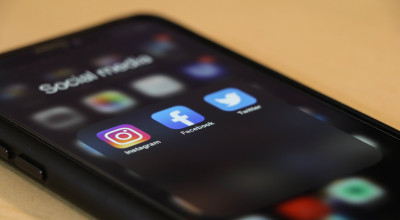Social Media And Its Effect on Mental Health
January 23rd, 2020
Social media is constantly evolving and changing. It is growing rapidly and is consistently entering new spaces within our daily lives. Social media has allowed us to be more connected with those near and far more than ever before. It can enable us to meet people that live thousands of miles away. It can allow us to learn things we might have never otherwise seen.
However, lost in all the benefits the rapid rise of social media can bring to humans is how it may impact our health, especially in negative ways. Social media has become intertwined with our daily lives. It has become a part of our morning routines, becoming as important as eating breakfast. The proliferation of social media users has made us more connected than ever. But is a digital connection as beneficial as a true one?
Social media has many undeniable benefits, but it is a powerful tool that may affect us more than we realize. Our reliance to these social media apps has made many of us inseparable from our phones and online lives. It was found in 2019 that the average US adult would spend over 3 hours a day on their smartphones. We have become intertwined with our smartphones and, more specifically, with the online lives that take place on the social media sites that populate our phones.
The wide variety of social media applications has re-wired in many ways how humans interact with one another. Social media has helped to re-shape some of the emotions we may feel when interacting with others. Social media has been shown to have an impact on things such as self-esteem, our connection with others, our sleep patterns, and can have influence on anxiety and depression. It has changed how many people interact with their friends and how they view themselves. It has even been shown to change how social and personal development occurs for children and teenagers, as more screen time leads to less face to face time. The use of social media in excess can have a detrimental on both our physical health and our mental health.
Let’s look at the impact that social media may have on health, especially mental health.
Self-Esteem
Social media sites such as Instagram and Facebook are designed to allow users to show off interesting things going on in their lives to friends and family. Due to this, our Instagram and Facebook accounts become highlight reels for our lives. Those who view our social media accounts usually only see our vacations, our fun nights out, or whatever other interesting things are taking place in our lives. The nature of these sites, however, can allow for ourselves and other users to begin comparing our lives to the posts we see from not only the celebrities we follow, but also from our friends and family. The content that is posted to social media is often held up against the everyday, real-life mundane content that we might be experiencing at the moment. This comparison effect can hurt how we view ourselves and our lives.
Comparing your life to the lives you see on Facebook and Instagram almost daily can cause you to reframe how you view yourself and can have a detrimental effect on one’s self-esteem. All of the comparing can have a profound effect on self-confidence as well. Social media, when used in excess, is shown to make users feel less satisfied with themselves, their lives, and their jobs. Feelings of negative self-worth that are emphasized by constant comparison with social media can harm one’s mental health. Being aware of how you are viewing other’s accounts on social media can help dissuade feelings of negative self-worth and a lack of self-esteem that has been shown to stem from using these sites.
Connecting with Others
The original concept for social media applications was to connect us with others. Social media allows us to be connected and to communicate with friends, family and even strangers from all ends of the Earth. However, social media can also make us less connected in our real lives outside of the screens, which can effect our happiness, our self-confidence and can emphasize feelings of loneliness. While we may be more connected on the internet, more time with screens leads to less time in person with those around us. As a result, many who spend more time connecting online have been cited to say they feel far lonelier and that they often feel as if they are missing out on something. This effect has contributed to many feelings both unhappy and more anxious about social interactions. While our online personas may feel more connected than ever, our lives are feeling far lonelier as time spent with other humans without screen drops. Studies have even found that regular use of Facebook and Instagram harms the wellbeing of the user. This digital divide that we have created from our real lives has created greater feelings loneliness and anxiety that stems from a lack of social interaction with others.
Happiness
Social media has been cited by many users as a primary cause for feelings of sadness and aiding in the development of mental health issues such as anxiety and depression. These feelings have been cited by both users that simply use the applications to engage with their family and friends, and also by users with large followings that equate them as social media celebrities.
Studies have shown that just under half of the users they interviewed said that social media made them feel anxious, depressed, or lonely. Some users even said that social media has led them to feel a combination of all three. These feeling have led many to opt to leave social media platforms. This decision has led to greater feelings of happiness and less feelings of anxiety and sadness from time spent using social media.
Social media is a powerful tool with several benefits. However, if used in excess, it can have an increased negative effects on one’s happiness and self-confidence. This excess use can even lead to the development of mental health issues such as anxiety and depression. While it may feel like we are becoming more connected, often social media is making us less connected to those around us. Logging off and experiencing those around every so often is shown to have positive effect and allow us to reconnect with our lives off the screen.
For help with mental health issues such as anxiety, depression, and PTSD, reach out to our admissions team today.


